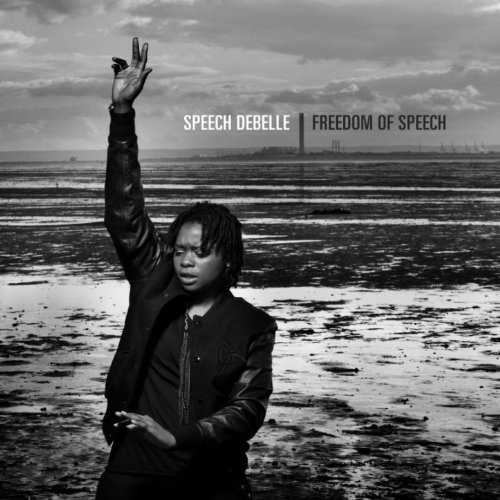
Speech Debelle
Freedom of Speech
Release Date: Feb 21, 2012
Genre(s): Rap, Underground Rap, British Rap
Record label: Big Dada
Music Critic Score
How the Music Critic Score works
Buy Freedom of Speech from Amazon
Album Review: Freedom of Speech by Speech Debelle
Fairly Good, Based on 8 Critics
Based on rating 8/10
This is where she starts showing off. Two years after her startlingly original and borderline-brilliant debut album, Speech Debelle is now the most interesting and possibly the most exciting British MC on the scene. This is partly due to the fierce intelligence of her rhymes, and partly to the newly dark and insistent power of her beats, crafted in collaboration with Kwes.
Based on rating 4/5
"South London rapper follows up Mercury-winning debut with modest, unambitious second album" is not a line you'll read about this explosive new record from Speech Debelle. If you're worried about a deficit of political anger in contemporary British music, listen to "Blaze Up a Fire", the track she leaked in August in response to the UK riots, or "Collapse", which describes with manic intensity the geopolitical road to global anarchy. Debelle is not always easy company and can veer into self-absorption, but the album is refreshingly outspoken and, with help from producer Kwes, musically daring.
Based on rating 3/5
Speech Debelle has been a prickly proposition since 2009, when she somehow became a less acclaimed Mercury prize winner than M People or Gomez, for her debut album Speech Therapy. This follow-up needed to pack some clout to pick up the pieces of her reputation and, in parts, it does just that. With producer Kwes, she's fashioned a fresh, synthy sound that takes in 80s soft rock and 90s swing, peppered with quirks of British hip-hop.
Based on rating 3/5
Lost amongst Speech Debelle’s Mercury Prize fandango was the fact that ‘Speech Therapy’ was actually an accomplished debut. On the follow-up, the chirpily spun, jazz-funk flows of ‘The Key’ and ‘Spinnin’’ have largely gone, to be replaced by a soundscape fashioned by Ghostpoet producer Kwes, evoking an urban city in flux. At its best, such as on ‘Elephant’ and ‘Live For The Message’, Speech’s flow teeters on the right side of sincerity, the music shadowing it with a subtle brooding.
Based on rating 3/10
Speech Debelle’s second album, Freedom of Speech, confuses artistic seriousness with topical seriousness. Debelle speaks of the Irish potato famine, civil unrest, dependence on oil, depression (economic and internal), and “lies getting old” from repetition. But she can be contradictory in her message, unable to decide between serenity and anger, uplift through pacifism or revolution through threat.
Opinion: Very Good
Having won the 2009 Mercury Prize with her debut album, Speech Debelle certainly had more to prove than others with the difficult second album. With the female hip hop landscape fairly sparse, especially in the mainstream, the return of Speech Debelle may be somewhat welcome; a more grownup, soulful Nicki Minaj without all the bubblegum and Barbie references.Immediately, ‘Freedom of Speech’ transports you to hip hop of the past, with a clear retro sound with ‘Studio Backpack Rap’. It’s catchy and bounces along like a British Salt-n-Pepa.
Opinion: Very Good
Born to a middle-class South London Jamaican family, Speech Debelle’s genesis has been one defined entirely by herself, purposefully eschewing any conventional notions of lay-dee hip-hop. There’s little hardship and none of it is glamorised, the music is only harsh when it needs to be and, most ….
Opinion: Average
One of Britain’s most intriguing hopes still has some serious thinking to do. Daniel Ross 2012 One of the more popular fallacies when it comes to music is the ‘curse’ of the Mercury Prize. Still, in a world where this head-scratcher remains prevalent, Speech Debelle (real name Corynne Elliot) must be one of the most convincing arguments for its existence.
'Freedom of Speech'
is available now

